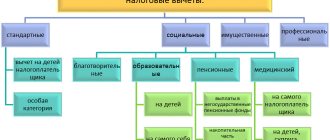Salesman
When communicating with the apartment seller, do not forget:
- check his passport against the list of invalid Russian sellers of the Main Directorate for Migration Issues of the Ministry of Internal Affairs of the Russian Federation. There are frequent cases of selling someone else's real estate using fake or stolen passports;
- request certificates from psychoneurological and narcological dispensaries. These certificates are not a 100% guarantee of sanity (this can only be established by an appropriate examination), but they help reduce risks. Regarding psychoneurological registration, you can get a standard certificate stating that the seller is not registered with a dispensary, but more significant evidence of his sanity will be the conclusion of a psychiatrist on his state of mental health on a date close to the time of signing the purchase and sale agreement.
If the owner of the apartment is a formally sane, but elderly or seriously ill person, whose age or state of health makes one doubt his full understanding of the significance of the sale transaction, it is better to refuse to purchase such an apartment.
It is imperative to check information about the seller on publicly available resources containing information about bankruptcy procedures, litigation and enforcement proceedings.
The presence of bankruptcy procedures for the seller can be determined by searching in the Unified Federal Register of information on bankruptcy, as well as in the database of arbitration proceedings “Electronic Justice”. In the second case, in the search line “Participant in the case” (at the top of the page on the left), you need to indicate the seller’s last name; apply the case filter (at the top of the page) “Bankruptcy” to the search results.
Possible legal disputes with the seller regarding the apartment should be looked for on the website of the district court of general jurisdiction at the location of the apartment (by virtue of the law, disputes regarding real estate are resolved at the place of its location). Unfortunately, the websites of courts of general jurisdiction are not completely unified, but searching for the necessary information on them is quite simple: you need to select the section “Search for court cases” / “Search for information on cases” or “Court proceedings”, indicate in the “Parties” column / “Participants” seller data and search.
If the seller of the apartment is a company (usually a developer), information about its bankruptcy, current and past legal disputes and enforcement proceedings is checked in a similar way on the same resources.
The next step will be a check in the Data Bank of Enforcement Proceedings of the Federal Bailiff Service. The presence of ongoing or unfinished enforcement proceedings is not an absolute stop factor for the purchase of an apartment, but it forces a more serious assessment of risks, including potential foreclosure or imposition of an encumbrance (seizure, prohibition of registration actions) on the purchased apartment.
How should a buyer check a secondary apartment?
How to check if an apartment is mortgaged?
Pitfalls of buying an apartment on the secondary market
- Sale of an apartment not by the owner by proxy. This should alert you, since there is a high probability that the power of attorney is expired or even fake. Even if the power of attorney is genuine, it can be revoked by the owner. Powers of attorney are often issued for the elderly, orphans, disabled people, and people suffering from alcohol and drug addiction. In addition, the real owner may not know about the sale of the apartment or may already be deceased.
- Privatization completed with violations. It is necessary to make sure that the residents who participated in the privatization are aware of the sale of the apartment and agree with it. Don't settle for someone who promises to check out after the deal.
- Transactions of a dubious nature in the history of the apartment being sold, especially with the participation of legal entities and state-owned enterprises, should alert the buyer.
- Sale of an apartment received as an inheritance (under a gift or rent agreement). In such cases, other applicants for the apartment may appear immediately after the transaction is completed.
- An apartment partially or fully purchased as maternity capital may be incorrectly registered as a property. When registering such an apartment, it should be taken into account that, by law, it must be registered as the common property of parents and children. However, not all owners follow this law. Unfortunately, today in Russia there is no effective control system for the design of such apartments.
- The owner of the apartment being sold is an incompetent citizen (minor, mentally ill person, alcoholic, drug addict). Such people are not prohibited by law from conducting sales transactions, but they may later be challenged in court.
- One of the owners of the apartment is a military serviceman, a prisoner or a person who disappeared in an unknown direction. Such citizens retain the right to use the apartment, despite their temporary absence.
- The apartment may be under arrest, pledged, or be the subject of litigation.
- The apartment belongs to the spouses. In this case, a notarized power of attorney from the second spouse is required, since according to the law, spouses can dispose of property acquired during marriage only together.
- Violation of pre-emptive rights to sell shares. In accordance with the Civil Code of the Russian Federation, the Seller must, first of all, offer the purchase of shares to neighbors or shared owners. Because the process is labor-intensive, sellers often circumvent this law.
- Selling an apartment using a fake passport. A fraudster can conduct a transaction using an old, allegedly lost passport.
- If the house is included in the resettlement plan, the transaction may be declared invalid. Often the Seller could simply not know about this, so this question must be clarified when purchasing a secondary home.
Many of these aspects can lead to lengthy and unpleasant legal proceedings, so before concluding a deal to buy an apartment on the secondary market, try to do as much research as possible.
So, if all legal factors have been taken into account and have not raised any complaints, do not rush to conclude a deal to purchase an apartment on the secondary market.
Be attentive to the inspection of the apartment, do not limit yourself to a quick glance at the layout of the rooms and the square footage of the apartment. Your carelessness may cost you both an administrative fine and major repairs.
What should you focus on?
- Assess the general condition of the apartment. Ask how long ago it was renovated, how old the wiring is, and what condition the plumbing is in.
- Look into the bathroom and kitchen to see if there is any mold or mildew there.
- Pay attention to the condition of the walls. They must be clean, without cracks or holes.
- It will be better if you choose a layout that is convenient for you; you should not expect to change it. In addition, find out whether the apartment has been remodeled before. It must be carried out legally, otherwise you will have to pay fines for the careless actions of the previous owners.
- Make sure you are satisfied with the location of the windows relative to the parts of the world. Think about where the sun will be in winter and where in summer. Will this apartment be too dark or too hot?
- In addition to the apartment itself, pay attention to the condition of the entire house. See if the garbage chute works, if the entrance is clean, and if the elevator needs repairs.
- Find out from the seller who will be your future neighbors. Your comfortable stay will largely depend on them.
Spouse's consent
If the seller is married, it is necessary to obtain a notarized consent of the spouse to enter into a contract for the sale and purchase of an apartment. It must contain an indication of the spouse’s consent to complete the transaction “at a price and on terms at his own discretion” or all the essential terms of the sales contract being concluded (primarily the sale price) must be indicated. Regime of property of spouses (ownership of an apartment by one of the spouses, despite its acquisition during marriage, etc.), special rules for the alienation of real estate can be established by a marriage contract. But even if it is available, it is much safer for the buyer to still obtain the consent of the seller’s spouse to the transaction. This will eliminate possible disputes in the future (for example, if the marriage contract is declared invalid).
If the seller is not married, you can obtain his notarized statement of absence of marriage. However, this does not exclude the risk of his spouse challenging the transaction if he dishonestly concealed the fact of the marriage. Risks can be minimized by requesting from the seller a certificate confirming the absence of state registration of marriage.
What other documents should I require from the seller?
1) Extract from the Unified State Register
(unified register of rights to real estate) is the most important document that must be checked. Contains information about all rights and encumbrances on the apartment. Any person can receive an extract for any property. You need to get a “fresh” one immediately before concluding a contract - to eliminate the risk of making later changes.
2) Document justifying the purchase of an apartment
by the seller himself. Usually this is a purchase and sale agreement, or a gift agreement, or a certificate of inheritance. If the apartment was inherited recently (1-2 years), then heirs who did not know about the opening of the inheritance may appear and demand the restoration of their inheritance rights.
3) Certificate of ownership
for an apartment. The owner must own a 1/1 share, all information about him (passport data) must match the information in the contract.
Please note that as of July 15, 2021, this document will no longer be issued. So if the seller himself purchased the apartment after July 15, 2021, then he cannot have such a document. This is not scary - all the important information for us is contained in the extract from the Unified State Register.
4) Cadastral passport
(contains information about the cadastral value from which property tax is calculated).
5) BTI technical passport
(contains technical data about the layout of the apartment, which must be compared with the actual layout).
6) Form 9
. Certificate of registered residents. It contains data on the type of registration of persons having the right of residence (temporarily or permanently), the date of registration, the date of deregistration of the person.
7) Form 7
. Characteristics of living quarters. The data must be compared with the data for the apartment in the contract and other documents.
 Certificate of absence of debt
Certificate of absence of debt
for utilities. The seller can obtain it from the HOA accounting department; also ask him to provide receipts for payment for the last months (bills for utilities, electricity, gas, contribution for major repairs), since the receipts reflect information about the existence of debt).
9) Documents confirming tax payment
for property (receipts);
10) Extended extract from the house register
. The owner receives it at the passport office. It reflects the entire “history” of those living in this apartment and those of them who privatized it. Based on it, we can conclude what the chances are that applicants for housing will appear.
11) Notarized consent of the seller's spouse
for the sale of an apartment if it was obtained during marriage under a compensated transaction.
12) Written refusal of a participant in common shared ownership
from the right of first refusal if the apartment is in common shared ownership
Apartment
In residential real estate transactions, no less important is the absence of legal risks associated directly with the purchased apartment. The fundamental document for verification will be an extract from the Unified State Register of Real Estate (USRN), which anyone can order directly on the Rosreestr portal.
In the specified extract, it is necessary to check the compliance of the data declared by the seller with reality. For example, the fact that a residential apartment is for sale, and not apartments classified as non-residential premises at the date of writing, compliance of the declared area of the apartment with the register data, etc.
In terms of legal purity and risks, the most important thing is section 2 of the extract from the Unified State Register of Real Estate, containing information about registered rights. It is necessary to check who is the owner and when the right was registered. It is very important that there are no restrictions, encumbrances, legal claims or legal claims to the apartment.
Checking the legal cleanliness of an apartment: 10 pain points
5 signs your real estate agent is a scammer
But that is not all. Section 8 of the extract must contain a plan of the apartment on the floor plan of the house. The buyer must compare this plan with the actual layout of the apartment in order to ensure that there are no unauthorized alterations or reconstructions. In the vast majority of cases, redevelopments that are not approved in the established manner do not entail irreparable risks (although the redevelopment will still have to be legalized), however, they can often lead to serious problems and the need to restore the original condition of the apartment (in the event of dismantling load-bearing walls, moving wet areas, etc.). P.).
How to check the legal purity of an apartment and other legal nuances
Unfortunately, as practice shows, it is impossible to be one hundred percent sure that an apartment is legally clean. However, you still need to take certain measures to check it: go with the seller to the BTI, passport office and housing office for the relevant certificates, get an extract from the house register. In addition, you need to check that there are no debts on utility bills and some other points.
Real estate agencies involved in supporting the purchase and sale of residential premises usually check the following information:
- the correctness of the drafting of the apartment purchase and sale agreement;
- a list of all former owners of this apartment;
- information from the BTI;
- financial and personal account indicating the presence or absence of financial debt;
- an extract from the house register;
- a list of all persons who have ever been registered in the apartment;
- a list of persons temporarily discharged from the apartment for sale due to conscription for military service, stay in a nursing home, etc.;
- no debt on telephone calls;
- absence of arrest, ban, etc. for an apartment.
In addition, to check all the nuances of the transaction, you can:
- Check with the police whether any of the owners of this property have received a statement about the loss of a passport;
- Ask the seller to provide a certificate from the tax service confirming payment of apartment tax (inheritance tax, gift tax, annual property tax);
- Check information about relatives. If they are not there, the seller must provide a written statement about their absence. If there is a spouse, children or other relatives who may also claim the apartment or its share, the seller must provide the written consent of the spouse, permission of the board of trustees or other documents (usually their notarization is required);
- Find out if the building in which the apartment is being sold is on the list for reconstruction.
To completely protect yourself from risk, you can insure the risks of purchasing a home with an insurance company, but such a guarantee is not cheap.
Before drawing up a contract for the purchase and sale of residential real estate, the seller and the buyer must decide which of them will bear the costs of completing the transaction, how long will it take to register all persons registered in the apartment, who and how will check for rent arrears, and whether the telephone number will remain .
The parties must also come to an agreement regarding the amount that will be specified in the purchase and sale agreement, and discuss what liability the seller of the apartment will bear if he fails to vacate it on time or refuses to sell the apartment altogether.
The question of the price of the apartment, which will be written down in the purchase and sale agreement, must be discussed. This is due to the fact that the seller is often interested in having the price in the contract indicated below the actual value, since the amount of taxes to be paid will depend on this. On the contrary, it is sometimes more profitable for the buyer to indicate the full cost of the apartment in order to receive.
It is worth approaching both the process of finalizing a real estate transaction and the issue of transferring money very carefully. After paying the seller, you must charge him in full.
Buying an apartment in a building under construction also has a number of advantages: guaranteed legal cleanliness of the apartment and a lower price compared to a similar apartment on the secondary market. In this case, the buyer is the first owner of the property, and, therefore, he is insured against problems of encumbrance of the apartment or claims of former owners.
In addition, when buying a new apartment, the buyer can pay the developer in installments and carry out repair work entirely in accordance with his wishes.
However, when purchasing a new apartment, the buyer should take into account that the procedure for registering such real estate takes much longer. If a regular purchase and sale agreement can be drawn up within 1-2 days, then the execution of an agreement for the transfer of an apartment, on the basis of which it is transferred to the buyer, may take 1.5-2 months.
It is worth noting that when purchasing a home from a developer, there is a certain risk. Situations have already arisen several times when a developer suddenly disappeared after collecting a certain amount of money, and the construction that had begun was stopped.
To avoid such a situation, try to check as much as possible the developer and the correctness of all documentation. You can follow the following recommendations:
- Before signing the contract, collect as much information as possible about the developer himself. Find out how long it has been working on the market, look at the company’s official website, go to a facility under construction.
- Compare and analyze apartment prices. A greatly reduced price may indicate the unreliability of the organization, since a stable and reliable company will not sell apartments below their real value.
- Ask for the constituent documents (charter, TIN certificate, OGRN certificate, etc.) of the developer.
- Look at the license giving the right to develop. In the license, carefully check its validity period and the availability of the right to construct buildings of appropriate height.
- Check your building permit carefully. There are cases when a development company carries out construction on several objects at once, but does not have permission for the particular building in which the apartments are sold. You also need to pay attention to the deadlines for the permit.
- Look at the project documentation.
- Study the terms of the contract. If you do not have experience working with legal documents, it is better, of course, to entrust the review of the contract to a professional lawyer who can point out all the pitfalls of the contract.
- Check the developer's right to the land plot on which the house is being built, as well as the intended purpose of this plot. The land plot must be allocated specifically for the construction of a house located at the appropriate address.
When buying and selling apartments in new buildings, three types of contracts are usually used:
- an equity participation agreement, the procedure for concluding which is strictly regulated by law. Under this type of agreement, the buyer of the apartment has the right to terminate the agreement unilaterally if construction deadlines or other obligations of the developer are violated;
- apartment purchase and sale agreement with installment payment;
- an agreement for participation in cooperative housing construction, according to which the buyer must pay membership and share fees equal in total to the cost of the apartment being purchased. This type of contract is the least regulated by Russian legislation, so its conclusion should be approached with extreme caution.
A short video to continue the topic:
Rules for drawing up an apartment transfer and acceptance certificate
Land donation agreement, sample filling
Real estate transactions are perhaps one of the most complex. This is caused both by the large sums of money involved, as well as by the consistently high demand for housing and the desire of the seller to sell the property as quickly as possible.
Buying an apartment is a very difficult and responsible matter. Especially if the question arises about purchasing an apartment on the secondary market. Here the client faces many pitfalls, which we will consider in our article.
First of all, the Buyer must have a good understanding of how to properly buy an apartment on the secondary market
and what exactly you should be afraid of.
So, we will look at the existing risk factors:
- Problems related to the legal “purity” of the apartment. This factor should be taken into account carefully, because ignoring it can lead to such serious consequences as the loss of already acquired real estate.
- Problems related to the actual condition of the apartment and the relevant documentation for it. Before purchasing, you should make sure that the apartment has not undergone unauthorized redevelopment, etc. Although these problems will not entail the loss of property rights, they can seriously hit your wallet.
- Problems associated with the execution of the transaction itself. It is worth taking care of the transaction.
Now let's take a closer look at each group in order.
Ownership verification
To check the legal purity of ownership of the seller of the apartment, you need to request from him the documents on the basis of which he purchased this property. In a short review, it is impossible to cover in detail the features of the legal verification of various transactions that may form the basis of the seller’s property rights (this could be privatization, purchase and sale, inheritance, acquisition under an investment agreement or an agreement for participation in shared construction, etc.), but it is possible formulate the following principles:
- The general limitation period is 3 years. It is much safer to purchase an apartment from a seller who has owned it for at least the specified period;
- You should be especially careful when purchasing an apartment from a person who inherited it and has owned it for less than 3 years (the statute of limitations). Disputes regarding inherited property are quite common. Sometimes completely conscientious sellers are deprived of their rights to inherited property, who at the time of the sale did not even suspect that their inheritance rights would be successfully challenged by other heirs;
- the seller of the apartment, having purchased it in the past, had to fulfill his obligations to pay for it (if it was purchased for a fee) to the previous owner. This is confirmed by a receipt, an act of mutual settlements, an account statement and payment orders with marks of execution (transfer of money by the bank to the seller) and other similar documents. The fact that the seller takes possession of the apartment is also important. This is confirmed by the apartment acceptance certificate;
- An obvious disproportion between the price of an apartment in past transactions and market conditions would be extremely suspicious. This point may lead to the recognition of previous sales contracts as invalid;
- You should order an extract from Rosreestr about the transfer of rights to the property, which will indicate the history of transactions with the apartment. If this document contains information about many of its resales recently, you should refrain from purchasing such an object. Very often, such resales are carried out in order to create an imaginary bona fide ownership, when they want to “steal away” illegally acquired real estate or hidden from foreclosure (in bankruptcy, by court decision, etc.).
In addition to documents for the purchase of an apartment (purchase and sale agreement, etc.), the seller should ask for documents confirming the absence of arrears in payment for the apartment and utilities, as well as an extract from the house register containing information about the persons registered in the apartment at the location residence and place of stay. The ideal option is to buy an apartment in which no one is “registered”. Otherwise, deregistration due to dishonest behavior of the seller and other persons living with him will have to be forcibly carried out after the buyer has registered ownership of this housing.
3 fraudulent schemes on the secondary market
5 types of transactions that need to be notarized
Title legal risks
Legal risks when purchasing real estate are also called title risks. They are associated with challenging the ownership of an apartment, house or other object. Situations can be very different:
- The property was acquired using maternity capital. In this case, the security of the transaction directly depends on whether the parent will allocate the obligatory share required by law to the child in the new home. There is no clear and transparent control mechanism; it is not prescribed in the legislation. And the buyer has no tools to control this situation. You can protect yourself if you receive confirmation that the property was purchased without using maternity capital. To do this, you can request the relevant documents from the seller.
- The property was inherited. In this case, there is a risk of challenging it. It decreases as the appropriate time passes. Nevertheless, an heir can always appear who was not known about and who, in turn, did not know about the opening of the inheritance. There is always some risk when purchasing inherited property. However, it can be reduced if you make sure that the inheritance procedure is followed.
- The property has changed owners several times over the past 3 years. Firstly, this may indicate a large number of different problems with the property. Secondly, this immediately increases the legal risks in relation to such property. Any transaction can be challenged. The more owners have changed, the higher the likelihood that someone may go bankrupt (and his creditors can appeal the deal), or some other claims will arise. Checking a large chain is problematic. Therefore, it is best to refuse to purchase such real estate.
- The property was purchased during marriage, and only one of the spouses sells it. Please note that the consent of the other person must be given to conclude the contract. Otherwise, such a transaction is not recognized as having taken place. Therefore, it is necessary to check with the owner whether he is married. If there has been a recent divorce, you need to make sure that the property is divided and the other party has no complaints about this.
- Minors are registered in the apartment or house, but consent from the guardianship and trusteeship authority to sell the property has not been given. In this case, the deal simply cannot take place. But if you try to formalize the contract, it will still be invalid.
- The transaction is carried out by an intermediary on behalf of the owner, but the power of attorney has been revoked. According to the legislation of the Russian Federation, the owner has the right not only to issue a power of attorney for the disposal of his property, but also to revoke it at any time. The problem for the buyer is that he can check the validity of such a document, make sure that everything is in order, and then go to enter into an agreement. And the owner is able to revoke the power of attorney at this moment. As a rule, such actions indicate a fraudulent conspiracy between the owner and his representative. However, this still needs to be proven. Don't forget about the presumption of innocence in criminal proceedings. So, as a precaution, it is best to avoid transacting with a representative unless you have good reason to trust him or the owner.
- Due to the financial situation, the owner becomes bankrupt soon after the sale of the apartment. In this case, there is a possibility that the transaction will be challenged by creditors. True, sometimes the court takes the buyer’s side. For example, if the transaction is carried out correctly, there will be no claims against the contract. The most important thing is not to be associated with the seller in any way and to conclude a contract at the real market price of the property. Communication means family ties, joint work, membership in the same club, etc. It is important that creditors cannot prove that the transaction is fictitious and that they are avoiding paying debts in this way.
Legal or title risks can be insured. This means that if you have problems and your title is disputed, the insurance company will pay for the losses.
Rental issues
Of particular note is the issue of the absence of concluded rental agreements in relation to the apartment. Renting an apartment for a period of one year or more is subject to reflection in the Unified State Register as encumbrances of the apartment. It should be noted that our legislation is generally focused on protecting the rights of tenants: even in the case of malicious late payment, the process of eviction of tenants can be significantly delayed. The complexity is added by the fact that employment contracts for a period of less than a year are not subject to reflection in the Unified State Register. At the same time, the sale of housing does not terminate the rental agreement: residents have the right to own and use it until the expiration of the contract.
The presence of short-term tenants can only be checked by a preliminary inspection of the apartment before concluding a contract for its purchase. But in most cases, such an inspection does not provide one hundred percent guarantees. The only real protection of the buyer’s interests is to indicate in the purchase and sale agreement the conditions (the so-called “representations of circumstances”) that the apartment is not burdened with the rights of third parties (including short-term rentals), as well as the establishment of strict contractual liability for violation of these representations. According to the law, in this case, you can refuse the contract and demand compensation for losses. It is also recommended to prescribe a penalty equal to the market rental rate for a comparable apartment.









